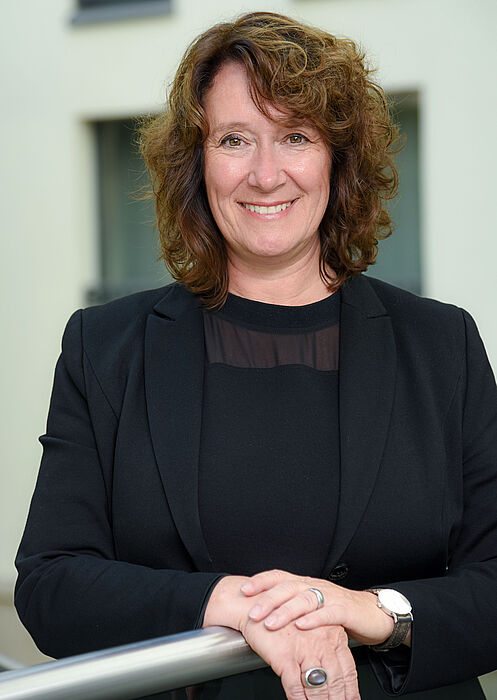DFG extends funding for ‘TRR 266 Accounting for Transparency’ Collaborative Research Centre
How can transparency help us along the path towards a more sustainable society? And when does it become a problem? How can companies survive crises more effectively? And would more transparency reduce accounting and tax scandals? These are all crucial questions, to which the transregional Collaborative Research Centre ‘TRR 266 Accounting for Transparency’ (TRR 266) is seeking scientifically substantiated answers. The relevance of this research has been further highlighted by the German Research Foundation’s (DFG) decision to extend TRR 266’s funding for another four years. Launched in 2019 as the first ever Collaborative Research Centre with a business administration focus, TRR 266 begins its second funding period in July. The expected total funding amount is around 18 million euros.
The objectives pursued by TRR 266 are meaningful and evidence-based regulations, improved corporate reporting and a more transparent tax system. Over the past four years, a team of around 100 researchers from eight German universities has been examining how accounting and taxation affect companies’ transparency, and how regulations and corporate strategy impact the economy and society. Built on a sound theoretical basis, supported by comprehensive background information from practical experience, and empirically tested using a wide range of innovative archive, field and laboratory data, transparency and its determining factors and effects are no longer unknown quantities.
This research should now be deepened further over the next four years – and ‘taken to a new level’, as emphasised by Professor Caren Sureth-Sloane, TRR266 spokesperson and professor at Paderborn University. ‘Building on our previous insights, during this second funding period we will further tackle the role of transparency and regulation in overcoming key social challenges’. Central topics include sustainability and macroeconomic and geopolitical crises – and the associated questions: Could transparency help us shape a more sustainable economy and society? Or are traditional instruments such as taxes or prohibitions more effective? How can we overcome crises more effectively, make companies more resilient – and increase trust in politics? What role could tax and transparency regulations play in this? And how much will it cost?
One key requirement for clarifying these and other research questions is innovative data, which will uncover the decisions taken within companies and prise open the corporate black box a little further. The German Business Panel served as a key basis for this during the first funding period of TRR 266. The insights this offered into entrepreneurial processes and assessments will be developed further over the next four years. However, as well as the right underlying data, other key factors are networking and exchange – both within and outside of the Collaborative Research Centre.
Alongside the three applicant institutions Paderborn University, the Humboldt-Universität zu Berlin and the University of Mannheim, the TRR 266 project also involves researchers from five other universities: the Ludwig Maximilian University of Munich, the Goethe University of Frankfurt, Frankfurt School of Finance and Management, WHU – Otto Beisheim School of Management and the University of Cologne. TRR 266 will also actively promote exchange with external researchers as well as politicians, regulators, and representatives of companies and NGOs via scientific conferences, public outreach events and other networking opportunities. ‘Exchange with other researchers and the practical world is extremely important to us. This gives us new momentum for practice-oriented research and allows us to make our research accessible to others. Other researchers can build on it, and practitioners can incorporate our findings into their work’, explains Professor Joachim Gassen, deputy spokesperson for TRR 266 and professor at the Humboldt-Universität zu Berlin.
The research being undertaken as part of TRR 266 is therefore continually conducted using an open science mindset: ‘We are not just researching transparency. We are living it’, Gassen notes. ‘We are developing methods for making our research as transparent and reproducible as possible, and making our data available to the public.’ Sureth-Sloane adds: ‘And we are “translating” our research so that it is accessible to all. We are using a variety of communication formats to tangibly present our research to the practical world, politics, students and the general public, in order to stimulate public discussion on key social topics using scientific evidence’, Sureth-Sloane explains.
Background information about TRR 266
The Collaborative Research Centre (CRC) ‘TRR 266 Accounting for Transparency’ was launched in July 2019. In May 2023, the German Research Foundation (DFG) decided to extend the CRC for a further four years. It is the first CRC to focus on business administration. The CRC involves around 100 researchers from nine universities: Paderborn University (contact university), the Humboldt-Universität zu Berlin and the University of Mannheim, plus researchers from the Ludwig Maximilian University of Munich, the Goethe University of Frankfurt, Frankfurt School of Finance and Management, WHU – Otto Beisheim School of Management and the University of Cologne. The researchers are examining how accounting and taxation affect companies’ transparency, and how regulations and corporate strategy impact the economy and society.



